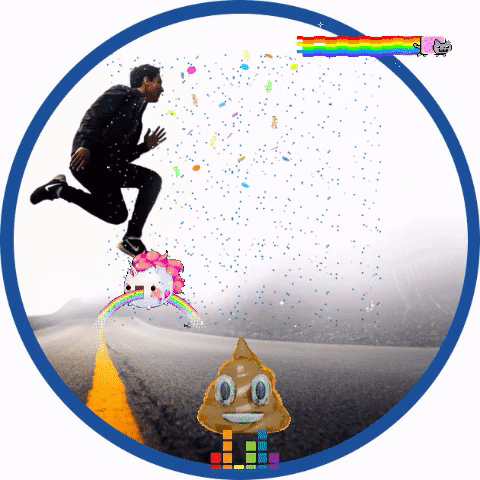
Last time I asked "Is Civilization a platform for the ideas of the state?", where by "Civilisation" I mean the popular and long running computer game, and more generally games where you control the running of a state, city or other large scale project. I ultimately wondered whether or not they promoted these ideas and whether that had any effect on the players.
Note on style: I'll be using less quotes (like you find in news articles) and more references and paraphrasing (like you find in books) because I don't want to just give you loads of quotes to read 🤓
Learning "by accident"
Will Wright is the creator of SimCity, The Sims and Spore. In a candid interview about his legacy, he focused mainly on SimCity as an educational tool, and the way that play and storytelling are "educational technologies" we can use to better understand the world instead of shrink away from it.
He also sees it as a complex system in the traditional meaning of the term, that sets of simple rules give rise to complexity and emergent properties. The main thing that is modelled here is economic policy, where you can think of the Economy emerging from the little rules about what happens if this area doesn't have enough resources, this one has a surplus, and the way resources are converted and destroyed.
Arguably more the most important activity in actual gameplay is the idea of "zoning", where land is zoned for different purposes. This is really like in a real city, though drastically simplified (of course). You have to balance industry with housing with commercial, and this is the most concrete mechanism which gives rise to the economy.
Taxation is theft the best!
I think the learning here is pretty direct, especially regarding taxation. It legitimizes taxation first and foremost as it is the basic way to fund your activities as mayor-god. You start off with an unexplained budget (probably from the last guy, or your state or federal government) which will disappear if you don't tax your citizens (or rather, if you remove the existing tax). It's the foregone assumption that in order to improve the city, and so their lives, you must levy them to pay for it.
Not only that but it is class-aware as you set three income level bands of tax. Apparently the objectively most effective tax rate can be found using the Laffer Curve model which the game uses, and works out at 12, 11 and 10 percent respectively for the lower, middle and upper classes. That's right, tax the poor more!

Experiences that live on
It's much better than a course in economics because it's actually fun. In fact, it seems like many today's young economists were drawn to the field directly because of exposure to SimCity. In fact so much so that we have this highly dubious but still plausible anecdote from a from a trained city planner:
There's an urban legend that my mentor once told me: "There are two piles when you apply to a top urban planning school. If you write about your love of SimCity, your application goes straight into ‘Pile B'—the trash bin."
The author, John Reinhardt of IBM, goes on to speculate that this likely expresses the idea that anyone who still thinks at college age that computer simulations are enough to solve real world city planning needs more time in the world to correct this notion.
Basic to complex, the requirement of lies in learning
Every now and again you stumble across an article which makes a big deal out of debunking some stuff you learned as a kid. This article is a good example, proudly proclaiming there are more than 5 senses, tomatoes are magnetic, and so on. My favorite is the the Bohr model of the atom which is pretty wrong. Unless you're a scientist or food nut you probably think you have 5 senses, tomatoes are not magnetic at all and that atoms are basically little planets.

The thing is that it's okay to learn partial knowledge, or even wrong knowledge, if it increases your understanding of something, even marginally. If you go on to study more about taste, magnetism or atoms you'll be able to disregard the bad idea scaffolding as your understanding strengthens. You can't really jump to the advanced stuff straight away. Or as some random chemistry teacher said:
“even [information] that is somewhat wrong can be enormously useful for […] changing the thought process in a certain field.”
You can apply this to SimCity. Sure, even though it's pretty complicated to play it's still a simplistic model of how a city works and there are a lot (really a lot) of assumptions made. As you approach reality you approach modelling reality, which is well outside the scope of a game made in the 90's.
I call this the "good enough" concept. You often don't need to be completely correct about something, just good enough. That's about accepting your margin of error and operating as if there were none with the knowledge you might be wrong safely tucked in your back pocket, ready to revisit. You're not going to be able to play SimCity if you're freaking out about supply-side vs Keynesian economics.
The Path to Awe
I personally have always been inspired by games in the genre. But when I reflect it's hard to pin down exactly what I've been inspired to do. It certainly wasn't to become an economist but I think it helped me hone skills in holding lots of information in my head at one time, and being able to think of many possibilities. I also think it gave me a sense of responsibility (you know, in a very limited way, like for a Tamagotchi), and along the way reenforced the apparently utterly hierarchical structure of things.
I found one guy who gushes for an entire post about SimCity, saying to put a "utopic streak in my thinking at a crucial time in my life, one which I’m enormously grateful for today" and that "it’s the dream, not the problems, that’s important", though he doesn't really elaborate on what the effects have been to his life. I really wonder because that could be positive but also really negative. Utopia is a mirage and it has been the case far too often in our collective history that terrible deeds were done in the pursuit of utopia.
The Path to Aww Shit, what have we done?!

The Nazi conquest was in search of a terrifying utopia, which of course would have been a dystopia. They are opposites and yet are in the eye of the beholder. For the chosen one's it could be heaven, while crushing the rejected to hell. In fact probably one cannot exist without the other.
There was a board game that came in 1930's Germany as anti-semitism was climbing from cultural phobias to the letter of the law. The was called Juden Raus! and is fairly infamous if you're a Nazi buff. I can't paraphrase this, it's too much:
The title is best translated as, “Jews, Get Out” [...]
In the game, young Germans across the Reich were encouraged [...] to move the six “Jew” game pieces around the board in such a way as to secure them on spots outside the metaphorical “wall” of the German state such that they would be transported “Auf nach Palästina!” (Off to Palestine!).
The game itself didn't work very well, was probably just a opportunistic idea capitalizing on anti-Jew sentiment, and in fact wasn't well liked by the establishment because it " it had the effect of trivializing such the, er, “noble” task of purifying Germany."
Education is the key - throughout life
Clearly that's an example of an overt message being taught to children with the use of games, so it is basically an educational game. This is a mainstay of games for kids, that there should be some educational purpose. Will Wright is into it, the Nazi's were, and we've seen that there is some noticeable effect.
When I was a kid / young man we always had instant distain for games that were explicitly educational. They were mostly lame because they were overtly about learning, usually learning by rote. Even learning how gears work explicitly by being told, and even in a game setting, is not that fun.
When learning is a byproduct it allows the game to be free to actually be fun. And from experience I know it is much more fun to actually design these games. Over the years what I've read about early game designers and developers indicates that many of them were idealists and really cared about things. I think that is abundantly clear.
When learning is covert it means the ideas learned can be unconsciously learned. This is the potential danger. However it's the sheltered kid that does not grow up and learn to challenge their own ideas. You may have learned to embrace harsh taxes on the poor, and indeed you may think this applies to the real world, but you are not also taught, perhaps when you are older, to challenge your assumptions about the world. It's okay to present kids with these simplified, sanitised and safe representations of the world because they will have cause to challenge them later. And if they don't it is us, the people around in the every day life, not the game designers who are to blame.
So flip side is that you're not going to be a very smart person if you base your knowledge of economics solely on SimCity. You will find out as an adult what it's like to be taxed. These should shape your understanding, and this goes for other aspects, not just tax of course.
Since I brought it up I have to say. Yea it was the Nazi game designers that were to blame too for that one. There are other examples of Nazi propaganda board games like Hunting for the Coal Thief but these couldn't have been super effective outside of the Nazi state. They reenforced the cultural ideas which were actively being promoted, not just as assumptions of how the world works. My interest is more in the subtle aspects, the obvious ones are, well, obvious.
Epilogue
I didn't really talk about Civilization that much, I focused on SimCity, mainly because it's where the research led me. But I've something to talk about next time about the idea that civilization is such a good thing after all, that might finally bring me to the answer to the original question: "Is Civilization a platform for the ideas of the state?"
Until next time, stay frosty ☃️
Pictures
1 (cropped), 2, 3 is WikiCommons, 4

Gif by @stellabelle, this is my first usage, thanks!
